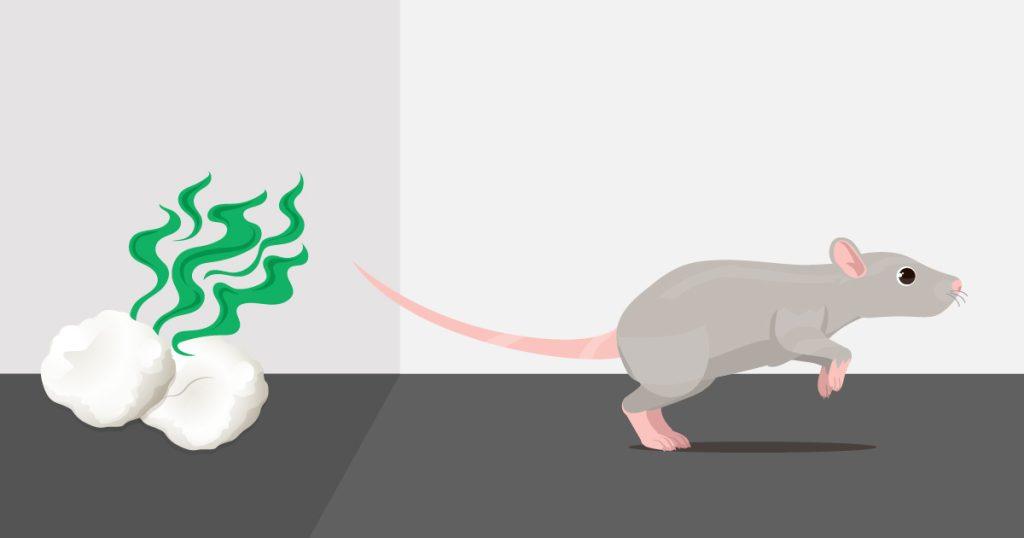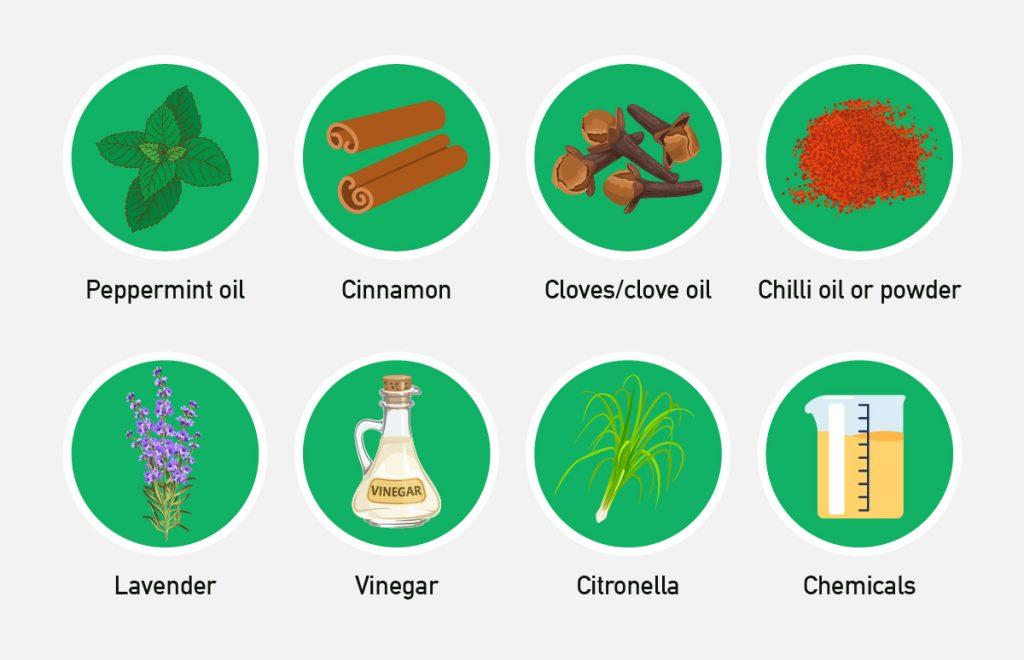What Scent Will Keep Mice Away?
We all know this line from a certain festive poem: “Not a creature was stirring, not even a mouse” — which is how it should be.
If you want to keep mice away from your home this Yuletide season – and throughout the rest of the year – you might be surprised at the different scents that have been known to deter them.
This month at Pest Defence, we’re going to explore mice deterrents and the scents they don’t like, so that you can keep your home as clean and cosy as in the classic Christmas poem.
Mice have a powerful sense of smell!
Rodents in general are known for their keen sense of smell, dedicating a full 1% of their overall DNA to their olfactory receptors. This powerful sense has been developed to help them both sniff out their next meal as well as to warn them of predators.
Science has also revealed that mice, and the wider rodent family, have a secondary organ for detecting smells: the vomeronasal pathway. This utilises chemosensory perception to create responses to different stimuli.

Do mice avoid certain smells?
Because the mouse has developed a powerful survival mechanism, it’s sometimes possible to use this in order to naturally deter them from your home or business premises. If your food attracts them, then it stands to reason that any smell they don’t like should repel them.
It’s often the stronger scents that mice don’t like. That’s because they tend to overpower their excellent sniffing skills, causing them to give certain areas a wide berth.
It should be stated, however, that this alone may not be enough, and we recommend sealing gaps and holes as well as ensuring you aren’t leaving any food in the open that would attract them.
You can find additional resources on the topic of mice and rodents in our Help & Advice area if you’d like to learn more about how to keep mice away.
If you’re struggling with a rodent issue, give our friendly team a call today.
What smells do mice hate?
Now you know that mice hate certain smells, it’s time to find out which ones you might be able to use to your advantage. Here are a selection of scents – some more festive than others – that could help you in keeping mice at bay:
Mint family, including peppermint, spearmint and garden mint
Why it helps: Any menthol scent has the ability to overstimulate the cold receptors in a mouse’s nasal passage, giving them the same unpleasant sensation we experience with too much menthol.
How to use it:
- Soak cotton wool balls in peppermint oil and put them in your loft eaves or around areas you believe mice are appearing.
- Plant spearmint in small pots and dot them around your outdoor space to create a sort of living barrier, especially near doors.
- Add a drop of peppermint oil to your washing liquid when you mop the floors, as this scent can then linger on your hard flooring.
Limitations: Menthol doesn’t tend to stick around long, so either replenish or use it as a temporary defence.
Cinnamon
Why it helps: Cinnamon is a pungent scent with a spicy aroma that helps to mask the pheromone trails mice use for navigation.
How to use it:
- You can simmer cinnamon sticks in a saucepan with a little water to let the vapour drift through your property.
- Tuck dried cinnamon in muslin pouches and hide them in drawers around the home.
- Cinnamon leaf oil can work well in a cost-effective diffuser.
Limitations: Some studies have shown that wild mice are not as easily deterred by cinnamon scents, so consider this only as part of a wider hygiene plan.
Clove and clove oil
Why it helps: It’s the eugenol in cloves that creates the irritating smell for mucous membranes in mice, encouraging them to forage elsewhere.
How to use it:
- Put cloves into slices of fruit if you prefer a more decorative deterrent.
- Add clove oil to water, shake and then spray around your skirting boards or areas where mice have been spotted.
Limitations: Clove oil can stain some paintwork, so always test on a small patch that won’t be noticed first.
Chilli
Why it helps: Capsaicin within chilli affects the pain receptors in all mammals, meaning that a single whiff for a mouse can help override their curiosity for exploring.
How to use it:
- Use chilli outdoors only, mixing a small spoonful of chilli powder with warm water and washing-up liquid to spray in high-risk areas, such as where bins are stored.
Limitations: Aerosolised chilli can irritate you, your children and your pets, so use sparingly and with care. Always wear gloves and a mask.
Lavender
Why it helps: Linalool and linalyl acetate within the floral compound of lavender may be soothing to us, but can disrupt the foraging behaviour of mice.
How to use it:
- Grow some English lavender along your garden or in window boxes.
- Add essential lavender oil to water and mist throughout your property – this can also aid a calmer night’s sleep for you.
- Dried lavender in muslin sachets can be placed in store cupboards to deter mice seeking food.
Limitations: Always check the ratio recommendation when using essential oils.
White Vinegar
Why it helps: Acetic acid in white vinegar can cut through grease trails left by mice to map the room, removing any attractant odours.
How to use it:
- Wipe down work surfaces and door kickboards with vinegar and warm water.
- Follow the above with another wipe using just water if you don’t want the tang to linger.
Limitations: Vinegar cleanses first, then deters second, so it works best as part of a wider cleaning programme.
Citronella
Why it helps: Citronellal has been shown to overwhelm the senses of rodents and can reduce their appetite in some cases when inhaled.
How to use it:
- Burn citronella candles in the summer months if you have outdoor spaces.
- Use essential oils and water mixed to spray around doors and windows.
Limitations: This may be better deployed in summer months when it won’t be counteracted by wind and rain.
Household cleaning chemicals
Why it helps: Standard cleaning chemicals can naturally use sharp scents to mimic predator urine and also signal to mice that the area is clean, making it less appetising to forage in.
How to use it:
- Regularly bleach and mop your floors, especially if you have a waste storage area.
Limitations: Do not mix bleach with acidic cleaners such as vinegar, as this can release toxic gas.

Trusted pest control for mice
Has this advice come too late for you? Have you tried these mouse-repellent techniques but still seem to have problems with mice? Then it’s time to call on the expertise of trusted pest controllers. At Pest Defence, we have decades of experience in mouse pest control and mouse removal, restoring order to both homes and businesses.
Don’t put up with it any longer, get rid of mice with our mouse control services performed discreetly by our qualified and accredited team for swift results. We can deploy a variety of techniques, including traps and rodenticides depending on the severity of the mouse infestation at your property.
Wherever you are in London and Essex – including Brentwood, Chelmsford and Colchester – call us today and book an appointment with our team.


